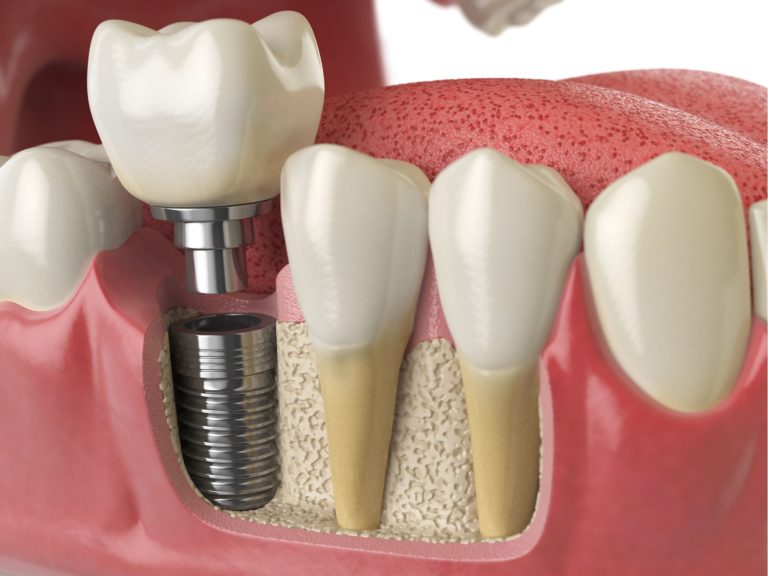In today’s competitive landscape, small businesses are constantly looking for ways to attract and retain top talent. Offering competitive benefits, such as dental and vision insurance, can be a powerful tool in achieving this goal. However, navigating the world of small business insurance can be overwhelming. This article aims to provide a comprehensive guide to dental and vision insurance for small businesses, covering everything from the benefits to the costs and how to choose the right plan.
Benefits of Offering Dental and Vision Insurance for Small Businesses
Offering dental and vision insurance to your employees can bring a multitude of benefits to your small business:
- Employee Attraction and Retention: In a tight labor market, offering competitive benefits can help attract and retain top talent.
- Improved Employee Health and Productivity: Employees with access to dental and vision insurance are more likely to maintain good oral and eye health, leading to fewer sick days and increased productivity.
- Enhanced Company Morale: Showing your employees that you care about their overall well-being can boost morale and create a positive work environment.
- Tax Advantages: Providing dental and vision insurance can offer tax advantages for both the employer and the employee.
Types of Dental and Vision Insurance Plans for Small Businesses
There are several types of dental and vision insurance plans available for small businesses:
- Dental Health Maintenance Organization (DHMO) Plans: These plans typically offer lower premiums but restrict coverage to a network of dentists.
- Dental Preferred Provider Organization (DPPO) Plans: These plans offer more flexibility in choosing a dentist but may have higher premiums.
- Dental Indemnity Plans: These plans allow you to see any dentist but typically have the highest premiums.
- Vision Service Plan (VSP) Plans: These plans cover routine eye exams, eyeglasses, and contact lenses.
- Vision Discount Plans: These plans offer discounts on eye care services but do not provide insurance coverage.
Understanding Dental and Vision Insurance Costs
The cost of dental and vision insurance for small businesses can vary depending on several factors, including:
- Number of Employees: The number of employees you have will impact the overall cost of insurance.
- Level of Coverage: The level of coverage you choose will also influence the cost. Plans with more comprehensive coverage will typically be more expensive.
- Employee Contributions: If employees contribute to the cost of insurance, it can lower the overall cost for the employer.
- Insurance Provider: Different insurance providers offer different rates, so it’s important to compare quotes from multiple providers.
Choosing the Right Dental and Vision Insurance Plan for Your Small Business
When choosing a dental and vision insurance plan for your small business, consider the following factors:
- Your Employees’ Needs: Consider the demographics of your workforce and their specific needs when selecting a plan.
- Your Budget: Determine how much you can afford to spend on dental and vision insurance and choose a plan that fits your budget.
- Plan Features: Compare the features of different plans, such as coverage limits, deductibles, and copayments.
- Insurance Provider’s Reputation: Choose an insurance provider with a good reputation for customer service and claims processing.
Dental and Vision Insurance Regulations for Small Businesses
Small businesses must comply with certain regulations when offering dental and vision insurance to their employees:
- Affordable Care Act (ACA): The ACA requires certain employers to offer health insurance, including dental and vision coverage, to their employees.
- Employee Retirement Income Security Act (ERISA): ERISA sets standards for employee benefit plans, including dental and vision insurance.
- State Regulations: Each state has its own regulations regarding dental and vision insurance, so it’s important to familiarize yourself with the laws in your state.
Dental and Vision Insurance Tax Benefits for Small Businesses
Offering dental and vision insurance can provide tax benefits for both the employer and the employee:
- Employer Tax Deductions: Employer contributions to dental and vision insurance premiums are generally tax-deductible.
- Employee Tax Benefits: Employee contributions to dental and vision insurance premiums can be made on a pre-tax basis, reducing their taxable income.
Tips for Implementing Dental and Vision Insurance for Small Businesses
Here are some tips for implementing dental and vision insurance for your small business:
- Communicate Clearly: Clearly communicate the benefits of dental and vision insurance to your employees and how to enroll in the plan.
- Educate Employees: Provide educational resources to help employees understand their dental and vision insurance coverage and how to use it effectively.
- Review Your Plan Annually: Review your dental and vision insurance plan annually to ensure it still meets the needs of your employees and your business.
Conclusion
Offering dental and vision insurance can be a valuable investment for small businesses. It can help attract and retain top talent, improve employee health and productivity, and boost morale. By understanding the benefits, costs, and regulations associated with dental and vision insurance, small business owners can make informed decisions and choose the right plan for their employees and their business.
Read More: Small Business Dental and Vision Insurance: A Comprehensive Guide for 2023 and Beyond





